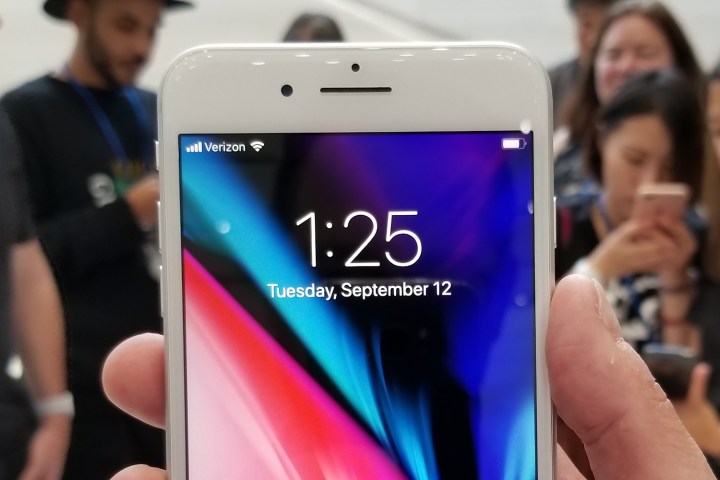
The A11 Bionic is the chip featured on the new iPhone 8, iPhone 8 Plus, and iPhone X, and we finally have some benchmark scores. Suffice it to say, the chip shows off some pretty serious performance. According to the scores on Geekbench, the iPhone 8 hits a massive 9,983 on its multicore score and 4,198 on its single-core score, putting competitors to shame.
For starters, the iPhone 8 performs around 25 percent better in single-core tests than the iPhone 7, and a whopping 80 percent better in multicore tests. Then we move onto Android phones, and things start to get ugly. Compared to the Samsung Galaxy S8, the iPhone 8 performs more than twice as good in single-core tests, and while things aren’t quite so dire in multicore tests, the Samsung Galaxy S8’s 6495 still doesn’t come close to the iPhone 8’s 9983.
Of course, benchmark tests aren’t necessarily the be-all-and-end-all of smartphone performance. For starters, the higher the resolution on the display, the harder a mobile processor has to work, and phones like the Samsung Galaxy S8 generally have much higher resolutions than the iPhone — which lost the crown of best mobile display resolution a long time ago. On top of that, benchmarks don’t necessarily offer a great indicator of real-world use — and any flagship phone should offer great performance for at least two years after you buy it.
Still, there is something to be said for these results. Many argue that the iPhone’s performance helps keep an iPhone’s software running smoothly years after it’s originally purchased, and the same can’t necessarily be said for Android phones. Even if most new flagship phones can handle all the mobile apps out there today, that doesn’t necessarily hold true for the future — a phone with better performance will be able to handle more complex apps in the future better than one that underperforms. It will be interesting to see how the likes of Qualcomm and Samsung plan on taking on Apple’s dominance in the mobile chip market, but in the meantime, if you’re looking for the best-performing phone on the market, then the iPhone 8 may be your best bet.
Editors' Recommendations
- Nomad’s new iPhone case and Apple Watch band may be its coolest yet
- 5 phones you should buy instead of the iPhone 15 Pro
- You won’t believe how I improved my phone’s battery life
- Your old iPhone may not get iOS 17 this year, and that’s good
- Watch the iPhone 14 Pro destroy this phone with a 200MP camera


